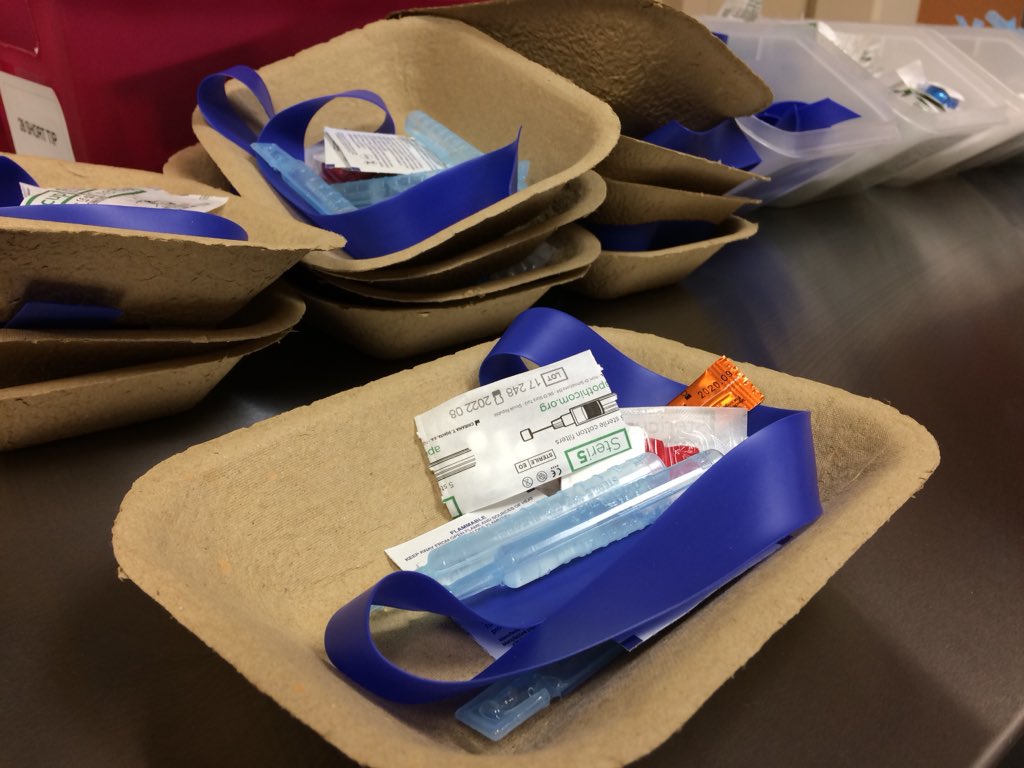TORONTO – Ontario has paused plans to open three new temporary overdose-prevention sites as it conducts a review to determine if such facilities will continue to operate in the province.

Health Minister Christine Elliott said the Progressive Conservative government will make a decision on the sites, as well as more permanent facilities aimed at fighting the opioid crisis, by the end of September.
Elliott said sites set to open in Thunder Bay, Ont., St. Catharines, Ont., and Toronto will be put on hold as the government decides if they “have merit,” adding that the review will look at a number of factors, including the facilities’ role in getting people into drug treatment programs.
“I just want to make sure that when public funds are being expended that supervised injection sites are going to serve their purpose, they are going to save lives, and they are going to help people get into rehab,” she said Monday.
Overdose prevention sites are approved by the province and are temporary facilities set up to address an immediate need in a community. Safe injection sites are more permanent locations approved by the federal government after a more extensive application process.
Eliott said she will make a recommendation to Premier Doug Ford on the province’s way forward with both types of sites. During the spring election campaign, Ford said he was opposed to safe injection and overdose prevention sites.

Get daily National news
Elliott said she believes there is “contrary evidence” that suggests the sites are not as effective as believed.
“I need to hear about that,” she said. “I need to hear about some of the neighbours, too … some people are concerned about having more safe supervised infection sites in the neighbourhood. I need to understand what their concerns are.”
Public Health Ontario statistics show that 4,427 people visited emergency rooms in the province in 2016 for opioid-related overdoses.
NDP Leader Andrea Horwath said the Tory government is ignoring evidence that suggests the sites save lives while it tries to please supporters.
“Look, it’s not an easy thing,” she said. “But to suggest that somehow the evidence isn’t there is wrong.”
Toronto’s Medical Officer of Health Dr. Eileen de Villa said scientific literature and studies have concluded that both overdose-prevention and safe injection sites save lives.
“We believe that these health services continue to be part of a comprehensive approach to the overdose emergency, along with harm reduction, prevention and treatment services,” she said in a statement on Monday.
A community organization in St. Catharines that was set to house the area’s first temporary overdose site said it was informed by the government on Friday that the facility was put on hold.
“We’re disappointed,” said Glen Walker, executive director of Positive Living Niagara, who noted that the site had been approved in May. “We felt it was a great opportunity to really look at what a temporary site could do to impact the opioid crisis in Niagara.”
Walker said his organization had seen a spike in overdoses due to the powerful opioid fentanyl being mixed in with other drugs.
“We thought the site was really going to help us reduce the number of deaths and engage more people in discussions about where to access treatment as well,” he said, adding that such facilities help build relationships with those who use them.
“From that trusting relationship, if they want to go into treatment, or if they need extra support, we’d be able to offer that to them.”
Overdose Prevention Ottawa, which runs a safe consumption space in the city and applied to run a mobile site said that facility’s fate is now unclear.
“We’re going to look and see what the best course of action is,” said James Hutt, an organizer with Overdose Prevention Ottawa. “We’re going to be … telling (the government) to listen to science and evidence and to not deny health service.”
Statistics Canada data shows that in the first six months of 2017, there were 1,460 opioid-related deaths in the country and that count is expected to rise as data becomes available.










Comments
Want to discuss? Please read our Commenting Policy first.